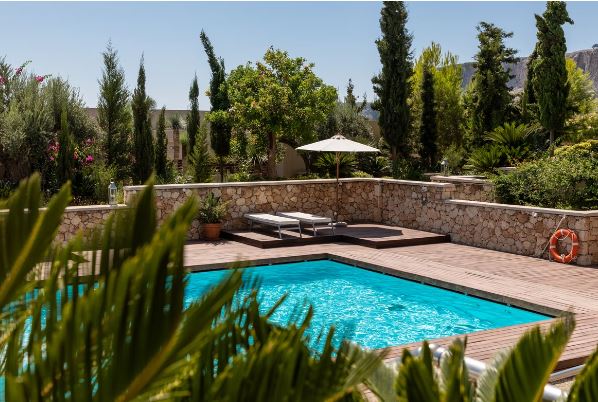
When Was It Built?
The first thing that you need to take into account is when your pool was built. If you have an in-ground pool that is only a few years old, it is likely to add great value to your home. However, an older pool may not have the same appeal to other potential buyers. An outdated or poorly maintained pool could detract from your home’s value. Additionally, a modern one with the smartest robotic swimming pool cleaners will add much more value than an old one. So, if you’re thinking of selling your home at any time soon, it may be worth investing in some updates to your pool area. This could include anything from replacing aging pool equipment to adding new features like a water feature or updated decking.
Location, Location, Location
Another important factor to consider is where your pool is located. If your pool is in a prime spot, such as a backyard with a nice view, it is likely to add value to your home. However, if your pool is in an inconvenient location, such as close to the house or in a shady spot, it may not be as appealing to potential buyers. For example, if your pool is right next to your neighbor’s house, they may not be too thrilled about the idea of having people splashing around and making noise all summer long.
The Size and Shape
When it comes to pools, size matters. A large pool is more likely to add more value to your home than a small one. Not only does a bigger pool offer more opportunities for entertainment and relaxation, but it also requires less maintenance. Additionally, a large pool is more likely to be used by potential buyers with children or grandchildren, as they will have more space to play.
When it comes to the shape, most pools are either rectangular or oval. While there is no definitive answer as to which shape is better, rectangular pools tend to be more popular with buyers. This is because they offer more space for swimming and are easier to maintain than oval pools.
Aesthetics
The way your pool looks will also affect its value. A well-designed and well-maintained pool are more likely to add value to your home than one that is poorly designed or badly in need of repair. If you are considering adding a pool to your home, it is important to work with a reputable contractor who can help you create a pool that is both functional and aesthetically pleasing.
What Kind of Pool Do You Have?
There are two main types of pools: in-ground and above-ground.
- In-ground pools are typically made of concrete, while above-ground pools can be made of wood, metal, or plastic. In general, in-ground pools add more value to your home than above-ground pools. This is because they are more permanent and require less maintenance. Additionally, in-ground pools tend to be larger than above-ground pools, which also makes them more attractive to potential buyers.
- Above-ground pools have their own set of advantages, as well. They are often less expensive to install than in-ground pools, and they can be moved if you decide to sell your home. Additionally, above-ground pools are less likely to crack or leak, which can save you money on repairs.
How Much Maintenance Does It Require?
Another important factor to consider is how much maintenance your pool requires. A pool that is easy to maintain is more likely to add value to your home than one that is difficult to care for. If you have an in-ground pool, you will need to hire a professional to clean it on a regular basis. This can be costly in the long run, so it is very important to factor that into your decision. Above-ground pools are generally easier to maintain, as they can be cleaned with a hose or pool vacuum.
The Materials Used
The type of material used to build your pool will also affect its value. In-ground pools can be made of concrete, gunite, or fiberglass. Fiberglass pools are the most expensive to install, but they are also the easiest to maintain. Concrete and gunite pools are less expensive than fiberglass pools, but they require more maintenance. When it comes to above-ground pools, the most popular materials are wood, metal, and plastic. Wood pools are the most expensive to purchase and install, but they offer a more natural look. Metal and plastic pools are less expensive than wood pools, but they may not have the same appeal to potential buyers.
The Filtration System
The type of filtration system you have will also affect the value of your pool. A pool with a sand filter is the most common type of filtration system, and it is relatively easy to maintain. A pool with a cartridge filter is also fairly easy to maintain, but it may require more frequent replacement of the cartridges. A pool with a saltwater chlorinator is the most expensive type of filtration system, but it is also the easiest to maintain.
Are There Any Safety Concerns?
Finally, you need to consider any safety concerns that come with owning a pool. If you have young children, a pool can be a great asset. However, if you have small children or pets, you may want to think twice about installing a pool. This is because there is always the potential for accidents. In addition, pools can attract unwanted guests, such as trespassers and burglars. If you’re concerned about safety, it is important to factor that into your decision.

A backyard pool can add value to your home, but there are a few things you need to consider before making the investment. The type of pool you choose, the materials it’s made of, the filtration system you use, and any safety concerns should all be taken into account. With a little research, you can make an informed decision about whether or not a pool is right for you.






